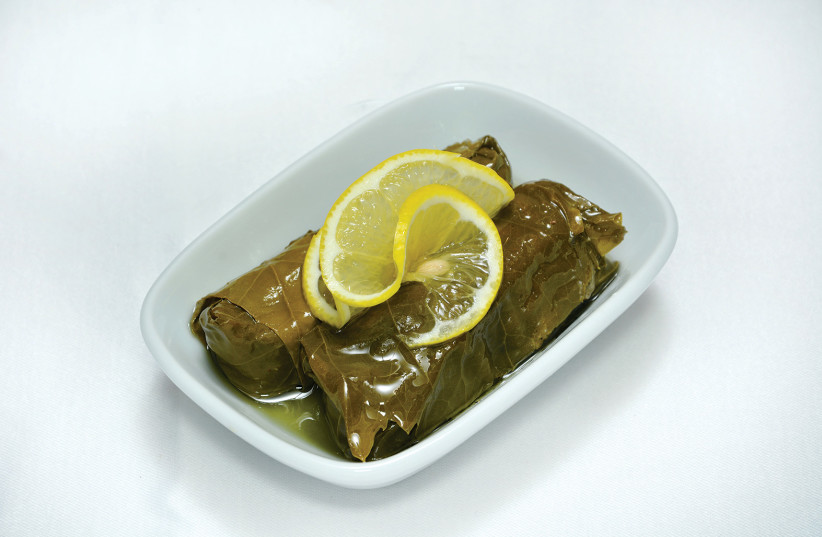On Saturday night, for one night only, Bajjali & Ko is opening a Korean pop-up diner at Jerusalem’s ASOS Salon. This diner will serve customers Bajjali & Ko’s signature style of food – fusion Palestinian and Korean cuisine.
Bajjali & Ko has an interesting story. A half Palestinian, half Korean family in Jerusalem, they have made waves for serving authentic and quality kimchi – Korean spicy pickled cabbage – which they can send on order to Jerusalem and Tel Aviv. And this is pretty significant. Trust me, it can be very difficult to get quality kimchi in Israel, unless you want to make it yourself.
This isn’t the first time they’ve opened such a pop-up restaurant, though they don’t have a traditional consistent restaurant. But what is interesting is the idea of combining Korean cuisine with Palestinian cuisine, cultures and culinary traditions that are so far apart both metaphorically and geographically.
Fusion cuisine has been practiced for a very long time, especially among immigrants. This makes sense, since people will bring their culinary traditions with them to their new homes, fusing their cultures and culinary traditions together for a new and unique blend. But as the world became more globalized and interconnected, fusion cuisine of culinary cultures from all over the world could, in theory, be found just about anywhere.
Fusion cuisine in Israel: A diverse Jewish heritage
Israel, of course, is no exception. It stands to reason that a country with such a diverse population with all sorts of backgrounds and heritages from regions all over the world, helped in no small part by the Jewish Diaspora having spread throughout the world for thousands of years, would consequently have a vast range of different types of foods. Sure, there are the Jewish food staples like gefilte fish and cholent, but that’s just from Ashkenazi cultures. What about Mizrahi Jews? Coming from a number of countries throughout the Middle East and North Africa, Mizrahi Jews are incredibly diverse, as are their food cultures.
Imagine trying to sample all of them. You could spend one evening enjoying a hot tagine, a traditional food from North African Jews, especially from Tunisia. And then another night, you would be treated to the savory delight that is the Persian Jewish dish of ghormeh sabzi.

And that’s all without mentioning other cultures, too. What about the immigrants from Russia and other Slavic countries? Why not try a satisfying meat-filled piroshki while downing a large, cold glass of kvass?
Then there are Jews who immigrated from the West, specifically from the United States. There is certainly no shortage of American food in Israel. One need look no further than the sheer prevalence of McDonald’s, Pizza Hut and other classic American foods in Israel for that. Of course, one could make the very strong argument that American food itself is by definition fusion cuisine already. After all, as a country of immigrants, its culinary DNA has been spliced and flavored by immigrants from all over the world.
The diversity of Palestinian cuisine
And this isn’t just exclusive to Jewish culture. Palestinian cuisine isn’t a monolith, either. Like Israeli cuisine, a lot of it is influenced by the culinary traditions in the region going back over a thousand years, particularly with the influence of the many Muslim polities that ruled over the land.
Superficially, there are some similarities to other culinary traditions in the region, such as in Jordan and Lebanon, but there are differences. And not only that, but there are also distinct differences between the culinary traditions among Palestinians in the West Bank and the Gaza Strip.
Both have some of the same basic staples together, such as beans, meat, fish, olive oil and staple dishes like tabun bread and pita. But the differences are still evident.
For example, West Bank Palestinian cuisine tends to focus more on heavier meat dishes. One popular dish is musakhan, a roasted chicken dish that originated around Jenin. There are also some regional differences within the West Bank based on local produce. For example, the Bethlehem area focuses on apricots, and the Hebron area focuses on grapes.
By contrast, Gaza Palestinian cuisine focuses less on meat and far more on fish and other seafood, which is the staple food of the entire area, as well as the use of spices and hot peppers for flavoring.
Both are also heavily influenced by their immediate neighbors, with West Bank Palestinian cuisine influenced by the Bedouin and Jordanians, and Gaza’s food bearing some of the hallmarks of Egyptian culinary tradition.
Fusion food in Israel's capital
Israel has always been an important region throughout history, being the bridge between three continents. It is no surprise that its culinary history is just as diverse as a result.
So something like Bajjali & Ko is right up the alley for a place where cultures have often come together.
But as exciting as the prospect of authentic kimchi and Palestinian-Korean fusion food may be, there is one flaw for people like me: It isn’t kosher.
But don’t worry too much because Jerusalem has no shortage of fusion cuisine or Asian fusion cuisine.
There are a number of options to choose from, and it often feels like a new eatery closes or opens every week. But in my humble opinion, you can’t go wrong with Station 9. This fantastic Vietnamese-Thai fusion restaurant in the First Station is absolutely amazing, and they deliver. I’ve had many memorable experiences both sitting at the tables in the restaurant itself or having the food delivered to The Jerusalem Post offices, eagerly awaiting what is probably my favorite dish on its stellar menu – the pulled-beef-filled bao buns.
But either way, if the lack of kashrut is not an issue for you, then try to make it to Bajjali & Ko’s pop-up diner at 3 Yanai St. If not, you can always contact them yourself for kimchi. ❖
Check them out on Facebook: www.facebook.com/bajjaliandko/?ref=page_internal
Or on Instagram: www.instagram.com/bajjaliandko/
